Who Was Who
The first integrated undergraduate class
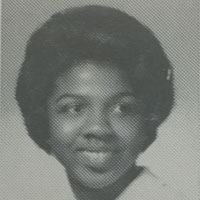 Dianne White Bernstein
Dianne White Bernstein
“It was a wonderful experience that made a difference in my life,” Bernstein, BA’ 68, said.
One of 10 children, Bernstein was the first in her family to go to college. Valedictorian of her high school class, she attended Vanderbilt on a Ford Foundation Scholarship. As a freshman living in Branscomb Quadrangle, Bernstein says she felt supported by both her roommates and some of the other white students. She gratefully recalls a math professor and a guidance counselor who steered her to a successful career as a psychiatric social worker and parole agent. Bernstein retired in 2004 and makes her home in Upland, Calif.
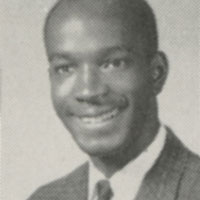 Norman Bonner
Norman Bonner
Bonner, who is deceased, left Vanderbilt after his freshman year
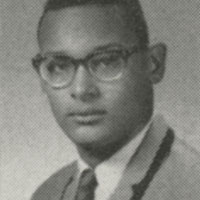 William Randolph Bradford
William Randolph Bradford
Bradford, who is deceased, left Vanderbilt after his freshman year
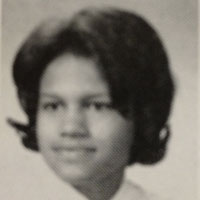 Conra Gandy Collier
Conra Gandy Collier
Collier, BA’68, lives in Brentwood, Tenn. The daughter of academics, Collier majored in French and earned a master’s degree in computer science in 1971.
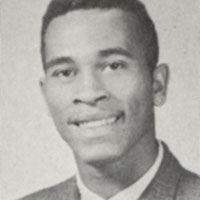 Maxie Collier
Maxie Collier
Brother-in-law to Conra Gandy Collier, the late Maxie Collier, BA’67, transferred from Tennessee State to Vanderbilt in 1965 to study chemistry and went on to earn his M.D. at the University of Maryland. He would later become Baltimore’s first African-American health commissioner and an early champion of needle-exchange programs to prevent the spread of the virus that causes AIDS.
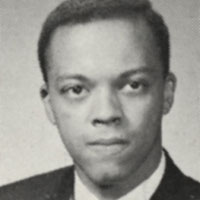 Earl LeDet
Earl LeDet
After graduating from Vanderbilt, the late Earl LeDet, BE’68, continued his studies earning a Master of Science and Engineering from the University of Pennsylvania in 1971 and a Doctor of Philosophy Degree from the University of Delaware in 1981. He also served in the U.S. Army and received an Honorable Discharge in 1970. His professional career included work at Bell Telephone Laboratories in New Jersey, John's Hopkins Applied Physics Laboratory in Maryland and the MITRE Corporation in Massachusetts. He also worked in the Bay Area applying his knowledge of technology to the field of medical instrumentation and testing.
Dr. Theopholis Maurice Lockridge
Theopholis Lockridge attended Vanderbilt University School of Engineering from the Fall 1964 to Spring 1966. He withdrew from the School of Engineering on April 20, 1966. Lockridge is the son of an activist Baptist minister who was successfully defended by Thurgood Marshall after the race riots in 1946 in his hometown of Columbia, Tennessee. During the Spring of 1966, Lockridge withdrew from Vanderbilt due to family obligations.
After changing his field of study (and work) to Accountancy, he tilted again to academia earning his Doctor of Philosophy degree in Business Administration/Accounting from the University of Memphis.
Professor Lockridge taught at several universities including his favored tenure at Marshall University (2006-11). He is currently enjoying retirement in Saint Petersburg, Florida.
 Robert J. Moore
Robert J. Moore
“My family was very poor,” said Moore, BA’68. “Attending Vanderbilt on a full Rockefeller Scholarship was the chance of a lifetime.
During the long bus ride from his home in Richmond, Va., to Nashville, Moore wondered how he would be received as one of the first African American students to attend Vanderbilt University’s undergraduate schools. What he found was a challenging, often lonely, ultimately rewarding experience.
Chancellor Alexander Heard was openly supportive of the black students. “He listened to us and encouraged his staff to listen, too,” Moore said. Moore would become president of the Afro-American Student Association, an organization founded by black students in 1967 to provide mutual support and problem-solving. A child protection attorney and a former high school English teacher, Moore now lives in Connecticut.
Dorothy Wingfield Phillips
“It was a difficult but ultimately rewarding experience,” said Phillips, BA’67, the first black woman to receive an undergraduate degree from Vanderbilt. “I learned about myself and what I can do against obstacles.”
The daughter of a Baptist minister, Phillips grew up in an activist family. Her older brother took part in the Nashville sit-ins, and her family was among the first to integrate a Nashville neighborhood. Phillips transferred from Tennessee State University in January 1966 with close to a 4.0 GPA. A chemistry major, she went on to earn a Ph.D. in biochemistry in 1974 from the University of Cincinnati. She retired as director of strategic marketing for Waters Corp., a laboratory analytical instrument and software company in Massachusetts.
Notable Alumni
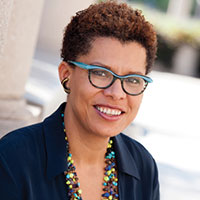
Sheryll Cashin
Cashin, the daughter of civil rights activists, was raised in Huntsville, Ala., and graduated from Vanderbilt in 1984 with a bachelor’s degree in electrical engineering. While a student, she helped found Vanderbilt’s Bishop Joseph Johnson Black Cultural Center and Association of Vanderbilt Black Alumni, both of which are celebrating 30th anniversaries in 2014.
She went on to earn her master’s degree in English law from Oxford University and her J.D. from Harvard Law School. Cashin clerked for the late U.S. Supreme Court Justice Thurgood Marshall as well as Abner J. Mikva, retired chief judge of the U.S. Court of Appeals for the District of Columbia Circuit. She worked for the Clinton administration, developing policies for inner cities. She currently is a professor of law at Georgetown University, where she teaches administrative law, Constitutional law, and race and American law, among other subjects.
Cashin served on the Vanderbilt Board of Trust from 2002 to 2012 and was the first African American woman elected as a regular Trustee.
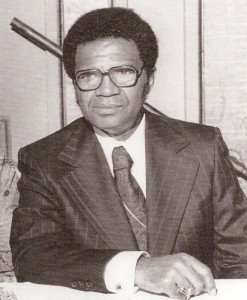
Bishop Joseph Johnson
Prior to studying at Vanderbilt, Johnson earned a bachelor's degree at Texas College and a doctorate at the Iliff School of Theology. Johnson and his family were living in Jackson, Tenn., when he was accepted into the Vanderbilt School of Religion in 1953 (renamed Vanderbilt Divinity School in 1956). At the time, he was president of Phillips School of Theology, a seminary of the Christian Methodist Episcopal Church. He became the first African American to graduate from Vanderbilt when he received a bachelor of divinity degree in 1954. He earned a doctor of philosophy degree in 1958. His dissertation was on "Christianity and Atonement in the Fourth Gospel."
Johnson's academic resume included professor of religion at Fisk University and professor of New Testament at the Interdenominational Theological Center. In 1966, Johnson was elected the 34th bishop of the Christian Methodist Episcopal Church. In 1971, he was elected to the Vanderbilt Board of Trust and two years later preached at the Divinity School's Cole Lectures. He served on the Board of Trust until his death in 1979.
When Johnson died in 1979 at the age of 65, the Board of Trust adopted a memorial resolution honoring Johnson for "his gifted eloquence, his tenacious energy, his uncompromised ethical values, his undented religious convictions, and his abiding loyalty to Vanderbilt." The Bishop Joseph Johnson Black Cultural Center at Vanderbilt was dedicated in his honor in 1984. In 2014, Johnson was honored by Divinity School and Graduate Department of Religion with their Distinguished Alumni/ae Award.
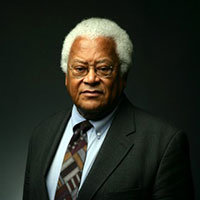 The Rev. James Lawson
The Rev. James Lawson
Lawson, who was once described by Martin Luther King Jr. as “the leading nonviolence theorist in the world,” enrolled in Vanderbilt Divinity School in 1958 as a transfer student from the Oberlin School of Theology. Lawson had been encouraged by King to come to the South to help lead the struggle for justice, and he began training black students for the sit-ins at segregated lunch counters in downtown Nashville. He became the director of nonviolent education for the Southern Christian Leadership Conference.
 In the spring of 1960, Lawson was asked by then-Chancellor Harvie Branscomb and the Board of Trust to resign for repeatedly breaking the laws against civil disobedience. When Lawson refused, he was immediately expelled.
In the spring of 1960, Lawson was asked by then-Chancellor Harvie Branscomb and the Board of Trust to resign for repeatedly breaking the laws against civil disobedience. When Lawson refused, he was immediately expelled.
The controversial expulsion, which prompted many Vanderbilt professors to submit their resignations, became known as “the Lawson affair.” A compromise was later worked out whereby Lawson was permitted to pursue his graduate studies at Vanderbilt, but he chose to complete his degree at Boston University. He returned to Vanderbilt Divinity School on a sabbatical during 1970 and ’71.
Lawson, a Methodist minister, remained active in the civil rights movement through the years. He chaired the strategy committee for the Memphis sanitation workers’ strike during which King was assassinated. In 1974 Lawson became pastor of Holman United Methodist Church in Los Angeles, where he served until retirement in 1999. Lawson is a former national chairman of the Fellowship of Reconciliation, the oldest pacifist organization in the United States. He also has been an active member of the Southern Christian Leadership Conference, serving as president for 14 years. In 1996 Lawson received the Vanderbilt Divinity School’s first Distinguished Alumnus Award.
The Vanderbilt Alumni Association also recognized him as a Vanderbilt Distinguished Alumnus in 2005. In 2006, he returned to campus as a Distinguished University Professor and taught at the university until 2009. In 2007, Vanderbilt established the James M. Lawson Jr. Chair at Vanderbilt in his honor, and in 2013 he donated a significant portion of his papers to Vanderbilt Libraries’ Special Collections.
Listen to talks by James Lawson >>
Watch: Ride for Freedom – 50 years later:
Watch: Rev. James Lawson Returns
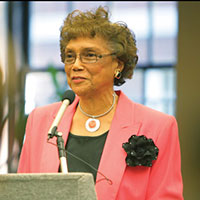 Tommie Morton-Young
Tommie Morton-Young
Morton-Young earned her master of arts in library science in 1955, becoming the first African American to graduate from George Peabody College for Teachers, as it was then named. The college would merge with Vanderbilt in 1979 and become Vanderbilt Peabody College of education and human development.
Morton-Young is a Nashville native who attended public schools and received her undergraduate degree cum laude from Tennessee State University. After receiving her master’s degree from Peabody, she went on to earn a Ph.D. from Duke University.
During her career, she has held many positions in government and higher education. She served as a researcher for the U.S. Navy Library in Washington, D.C., and did transliteration in Russian for the Library of Congress. She also taught at several universities, including Atlanta University, Tennessee State University, the University of Wisconsin, North Carolina State University, North Carolina Central University and North Carolina A&T State University. She retired from the University of North Carolina system as a full professor.
Peabody College awarded Morton-Young its 2010 Distinguished Alumna Award during its Commencement exercises. Morton-Young also delivered the graduation remarks for students receiving master’s or doctor of education degrees.
 The Rev. Walter R. Murray Jr.
The Rev. Walter R. Murray Jr.
Murray, a Nashville native, graduated from Pearl High School in 1966. He and best friend Perry Wallace were among the university’s first African American undergraduates. During his time as a student at Vanderbilt, he was vice president of the Student Government Association and a founder of the Afro-American Student Association.
Murray later became the first African American to serve on Vanderbilt University’s Board of Trust. He was elected a Young Alumni Trustee in April 1970 and served until 1972. Murray died in 1998. In 2007, Vanderbilt named a new residence hall and a memorial lecture in his honor.
 Kelly Miller Smith
Kelly Miller Smith
A pioneering Nashville civil rights leader who also was the university’s first African American administrator, Smith served as assistant dean of Vanderbilt Divinity School, where he taught Church and Ministry. His papers, which are housed at Special Collections at Vanderbilt University Library, illuminate his skill as a creative and inspiring leader in religious thought, as an academician, and as an active citizen and conscience of the broader community.
A Baptist preacher and author, he was raised in Mound Bayou, Mississippi. Smith entered Tennessee State University in 1938 as a music major. Two years later, he decided to focus on religious studies and received a B.A. in religion and music from Morehouse College in 1942 and a master of divinity degree from Howard University Divinity School in 1945.
He moved to Nashville in 1951 and became pastor of First Baptist Church, Capitol Hill, a position he would retain until his death. He became president of the Nashville NAACP in 1956 and co-founded the Nashville Christian Leadership Council in 1958. Through the NCLC, he helped to organize and support the local student sit-in movement that would successfully end racial segregation at lunch counters in Nashville.
Currently, through the Kelly Miller Smith Institute on Black Church Studies at Vanderbilt, his work endures in the education of leaders in ministry, the promotion of dialogue between African American theologians and church leaders, and the development of research materials. In 2012, Vanderbilt named a new residence hall in his honor. Smith Hall is part Moore College, a living-learning community for sophomores, juniors and seniors.
Listen to interviews with Smith >>
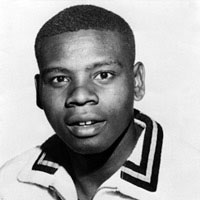 Perry Wallace
Perry Wallace
Wallace, who attended Vanderbilt from 1966-1970,was the first African-American athlete to receive a basketball scholarship in the Southeastern Conference. He graduated from Vanderbilt with a degree in engineering, earned a law degree from Columbia University and worked in the Justice Department. In 1992, he was appointed to the Environmental Policy advisory council of the EPA. He was a professor at Howard University and the University of Baltimore. Since 1993, Wallace has been a Professor of Law at the American University Washington College of Law and is tenured. Wallace specializes in environmental law, corporate law and finance.
 On February 21, 2004 Wallace returned to the Vanderbilt campus and Memorial Gymnasium to receive a high honor. The university officially retired his jersey number "25." The Nashville Metro Council proclaimed it "Perry Wallace Day." His jersey is one of only three in school history to be retired. He remains Vanderbilt’s second-leading rebounder and ranks 35th in scoring, having played just three seasons. Wallace won the SEC Sportsmanship Trophy after a vote by league players in 1970. He is an inductee in the Tennessee Sports Hall of Fame and was named by the National Association of Basketball Coaches to its five-man Silver Anniversary All-America team.
On February 21, 2004 Wallace returned to the Vanderbilt campus and Memorial Gymnasium to receive a high honor. The university officially retired his jersey number "25." The Nashville Metro Council proclaimed it "Perry Wallace Day." His jersey is one of only three in school history to be retired. He remains Vanderbilt’s second-leading rebounder and ranks 35th in scoring, having played just three seasons. Wallace won the SEC Sportsmanship Trophy after a vote by league players in 1970. He is an inductee in the Tennessee Sports Hall of Fame and was named by the National Association of Basketball Coaches to its five-man Silver Anniversary All-America team.
In 2007, he returned to Vanderbilt to deliver the inaugural Walter R. Murray Jr. Memorial Lecture, which was named for his best friend who was also among Vanderbilt’s first African American undergraduates.
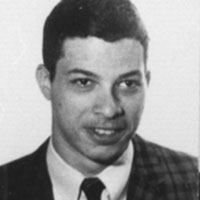 Levi Watkins
Levi Watkins
Watkins, a professor of surgery at Johns Hopkins University’s School of Medicine, was the first African American to enroll at and graduate from the Vanderbilt Medical School.
His passionate advocacy for racial equality and diversity was shaped by his early exposure to the Civil Rights Movement and its leaders. A noted cardiac surgeon, he has been a pioneering leader not only in efforts to bring more racial diversity to medical and graduate education but also in research on coronary heart disease.
Watkins grew up in Montgomery, Ala., and was the valedictorian of his class at the Alabama State Laboratory High School. During that time he was introduced to and became friends with the Rev. Ralph Abernathy and the Rev. Martin Luther King Jr. through his attendance at their churches. Watkins earned his bachelor’s degree at Tennessee State University, where he participated in the Civil Rights Movement.
He then enrolled at Vanderbilt, where he received his M.D. in 1970. As a medical student he was selected for membership in the Alpha Omega Alpha medical honor society.
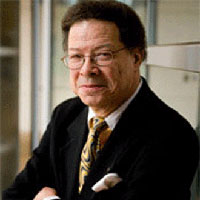 Watkins completed a surgical internship at Johns Hopkins and became the hospital’s first African American chief resident in cardiac surgery in 1978. Two years later he performed the world’s first implantation of an automatic defibrillator in a patient.
Watkins completed a surgical internship at Johns Hopkins and became the hospital’s first African American chief resident in cardiac surgery in 1978. Two years later he performed the world’s first implantation of an automatic defibrillator in a patient.
Watkins later developed several techniques for implanting this device. His strong interest in the risk of coronary heart disease in African Americans propelled his research, which is credited with saving hundreds of thousands of patients at risk for sudden cardiac death.
During a break in his surgical training from 1973 to 1975, Watkins conducted research at Harvard Medical School on the role of renin-angiotensin blockers in the treatment of congestive heart failure. The research of Watkins and others led to the clinical use of angiotensin blockers in the treatment of congestive heart failure.
At Johns Hopkins, Watkins worked tirelessly to increase diversity in medical education. Minority representation among medical students there had risen by 400 percent four years after Watkins joined the school’s admissions committee. In 1983 he was selected to the national board of the Robert Wood Johnson Minority Faculty Development Program, which strives to increase the number of minority medical faculty across the country.
At Vanderbilt, Watkins has established the annual Levi Watkins Jr. Lecture on Diversity in Medical Education, In addition, the position of professor and associate dean was created in his name.
He was previously honored with the Vanderbilt Medal of Honor for outstanding medical school alumnus in 1998. In 2005 his portrait was unveiled at the School of Medicine, recognizing his life’s work and commitment to Vanderbilt. Watkins served on the Vanderbilt University Board of Trust from 2003 to 2013. He was also named the university’s 2008 Distinguished Alumnus.

